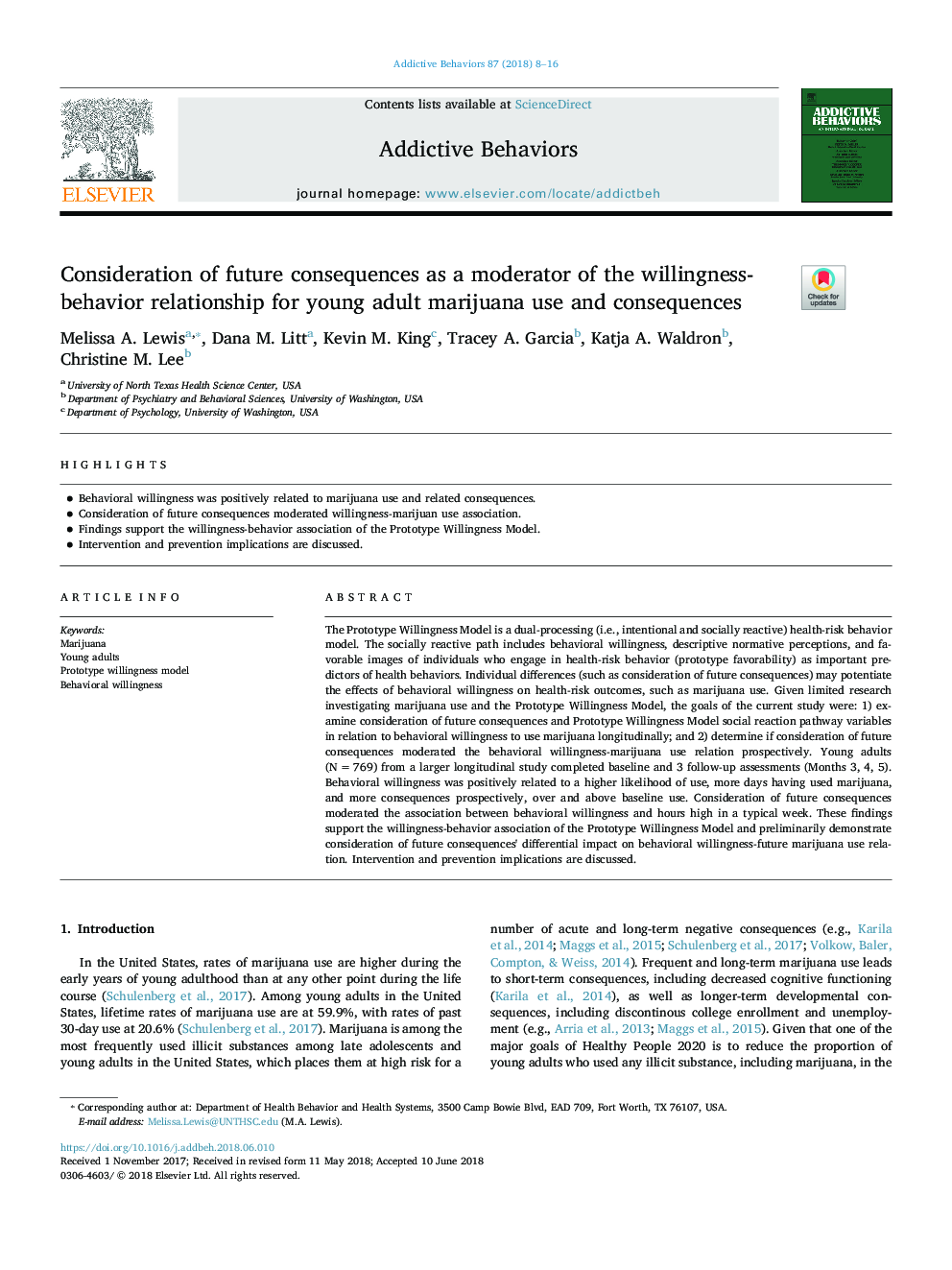| Article ID | Journal | Published Year | Pages | File Type |
|---|---|---|---|---|
| 7258631 | Addictive Behaviors | 2018 | 9 Pages |
Abstract
The Prototype Willingness Model is a dual-processing (i.e., intentional and socially reactive) health-risk behavior model. The socially reactive path includes behavioral willingness, descriptive normative perceptions, and favorable images of individuals who engage in health-risk behavior (prototype favorability) as important predictors of health behaviors. Individual differences (such as consideration of future consequences) may potentiate the effects of behavioral willingness on health-risk outcomes, such as marijuana use. Given limited research investigating marijuana use and the Prototype Willingness Model, the goals of the current study were: 1) examine consideration of future consequences and Prototype Willingness Model social reaction pathway variables in relation to behavioral willingness to use marijuana longitudinally; and 2) determine if consideration of future consequences moderated the behavioral willingness-marijuana use relation prospectively. Young adults (Nâ¯=â¯769) from a larger longitudinal study completed baseline and 3 follow-up assessments (Months 3, 4, 5). Behavioral willingness was positively related to a higher likelihood of use, more days having used marijuana, and more consequences prospectively, over and above baseline use. Consideration of future consequences moderated the association between behavioral willingness and hours high in a typical week. These findings support the willingness-behavior association of the Prototype Willingness Model and preliminarily demonstrate consideration of future consequences' differential impact on behavioral willingness-future marijuana use relation. Intervention and prevention implications are discussed.
Related Topics
Life Sciences
Neuroscience
Behavioral Neuroscience
Authors
Melissa A. Lewis, Dana M. Litt, Kevin M. King, Tracey A. Garcia, Katja A. Waldron, Christine M. Lee,
